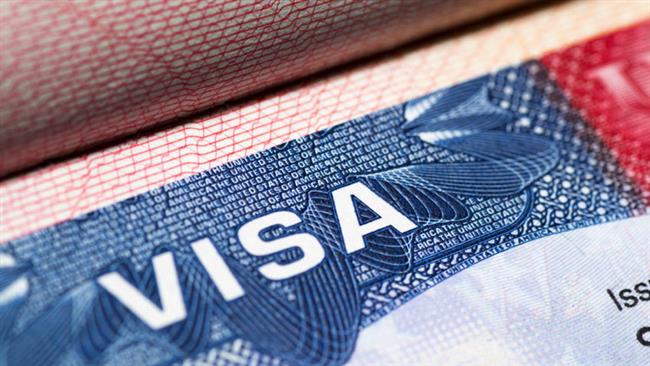Germany Immigration: How To Apply For Germany Visa
There are many reasons why people want to live in other countries. Sometimes they change due to the opportunity to study or employment, or because they know someone from another country and want to live with him or her, or simply because they like to travel and explore new cultures.
Well, to move to Germany, several things can be done before moving, and many of them can reduce stress and make the whole process pleasant.
So, this article will cover the German immigration process.
Reasons for High Immigration to Germany
- It is a multicultural country.
- Germans are known to be tolerant of immigrants as long as they are suitable for them as well.
- First-class education, especially if you want to do a specialization or research.
- Every year ,Germany loses at least 250,000 workers due to old age; therefore, the country always offers job opportunities.
- To continue its economic growth, Germany receives 800,000 or more skilled immigrants annually.
- After having some of the best social programs in the world, crime in Germany is practically non-existent.
- Germany has resisted the economic crisis better than its continental neighbours. With its relatively low unemployment rate and steady growth rate
Documents Required to Immigrate to Germany
Below are the documents that every immigrant must present for the German immigration process;
- An updated passport that has a blank page for the German visa. The passport validity must be at least three months longer than the period for which the visa is requested.
- Application form, which varies according to the nationality of the emigrant.
- 2 passport size photos.
- Evidence confirming that the visa applicant has sufficient resources to survive in Germany.
- Evidence confirming that the visa applicant has health insurance.
- Evidence showing the real reason for the trip to Germany, such as hotel reservations, return tickets, etc.
- If the immigrant requests a student or work visa, they must present a letter written by the school, university, or company. The request must be made at least 6 weeks before the planned departure date.
If you apply for the visa outside of your home country, your application will be forwarded to the German embassy there, and the visa will take longer to be issued.
The German Immigration Procedure
- You must have a visa if you are going to stay in Germany for more than 90 days. You will also need a valid passport less than 10 years old and that has at least one blank page.
- You have to determine the type of visa that suits your purpose. There are several types of visas to live in Germany, but they all fit into one of two main categories: limited and non-limited.
Meanwhile, the specific types of visas include business, employment, permanent, tourism, and family. The German Embassy can help determine what is best for your case, but the ultimate responsibility for getting it right is yours.
- Find a place to live in Germany and make sure your documentation is in order. A relocation service can help you with the rental system.
If you are moving to Germany for a new job or job transfer, ask about the employer’s home. Ideally, you have these problems resolved before you go to Germany.
- Prepare to ship household items to Germany.
Documents required for shipment include an inventory list, your passport, visa, and documents showing that you are working in Germany, if applicable.
Even items such as registered firearms can be brought to Germany if they are accompanied by the corresponding legal documents. They must also be registered immediately upon arrival in Germany.
- If you have a property in your country, sell it or rent it. Contact a real estate agent or asset management company to resolve this issue before moving to Germany.
Germany Immigration Tips
- It will be much easier to move to Germany if you are an EU citizen.
- You should find out in advance in which region of Germany you want to live. Germany has 16 states, which can be very different. The most recommended states are Berlin, Rhineland-Palatinate, Brandenburg and Bavaria.
- When making the visa application, go to the embassy with photos in the required passport measures. Before moving, it is good to familiarise yourself with the German language through textbooks, audio, or classes at an institution.
One of the requirements for living in Germany is to have at least an intermediate level of German. Many people speak other languages, such as English and French, but German is a requirement.
FAQs
What are the main types of Germany visas available for immigration purposes?
Germany offers several visa types depending on the purpose of travel. The main categories include the work visa for professionals seeking employment, the student visa for individuals pursuing education, the family reunion visa for joining relatives, the job seeker visa for those looking for employment opportunities, and the business visa for entrepreneurs and investors. Each category has its own requirements and validity periods.
What documents are required when applying for a Germany visa?
Applicants typically need a valid international passport, completed visa application form, recent passport-sized photographs, proof of accommodation in Germany, travel health insurance, financial proof of means to sustain themselves, and a visa fee payment receipt. Depending on the visa type, additional documents such as an admission letter (for students) or a work contract (for employees) may be required.
How long does the Germany visa application process take?
Processing times for a German visa vary depending on the type of visa and the applicant’s country of residence. Generally, short-stay visas (Schengen visas) take about 10 to 15 working days, while long-stay national visas can take 6 to 12 weeks or longer. Applicants are advised to apply well in advance of their planned travel date to avoid delays.
Where can I apply for a Germany visa and how is the process carried out?
Applicants can submit their visa applications at the German Embassy or Consulate in their home country. The process involves filling out the visa application form online or manually, booking an appointment, submitting all required documents, and attending a visa interview. After submission, applicants can track the status of their application through the embassy’s official website or the service provider handling visa processing.








